Let’s face it, tooth loss has the biggest impact on your smile. So here is our first chapter on dentures. If you don’t know much about dentures, here is a detailed chapter with all the information you need about dentures.
In this chapter, we discuss what dentures are, what they look like, and whether they are right for you. Plus, we discuss how to find the best dentist for this treatment, and what to expect next.
1. What are dentures?
Tooth loss can lead to many physical and psychological problems, from low self-esteem to difficulty chewing to bone loss. Dentures are artificial teeth that help you regain your confidence and put on your best smile. They are convenient and non-invasive and available as both removable and permanent dental appliances.
They improve your chewing ability and get your teeth working the same way again. They are also customizable, so you can retrofit them again. In short, this restoration is perfect if you are looking for a cost-effective treatment to restore your smile and oral health.
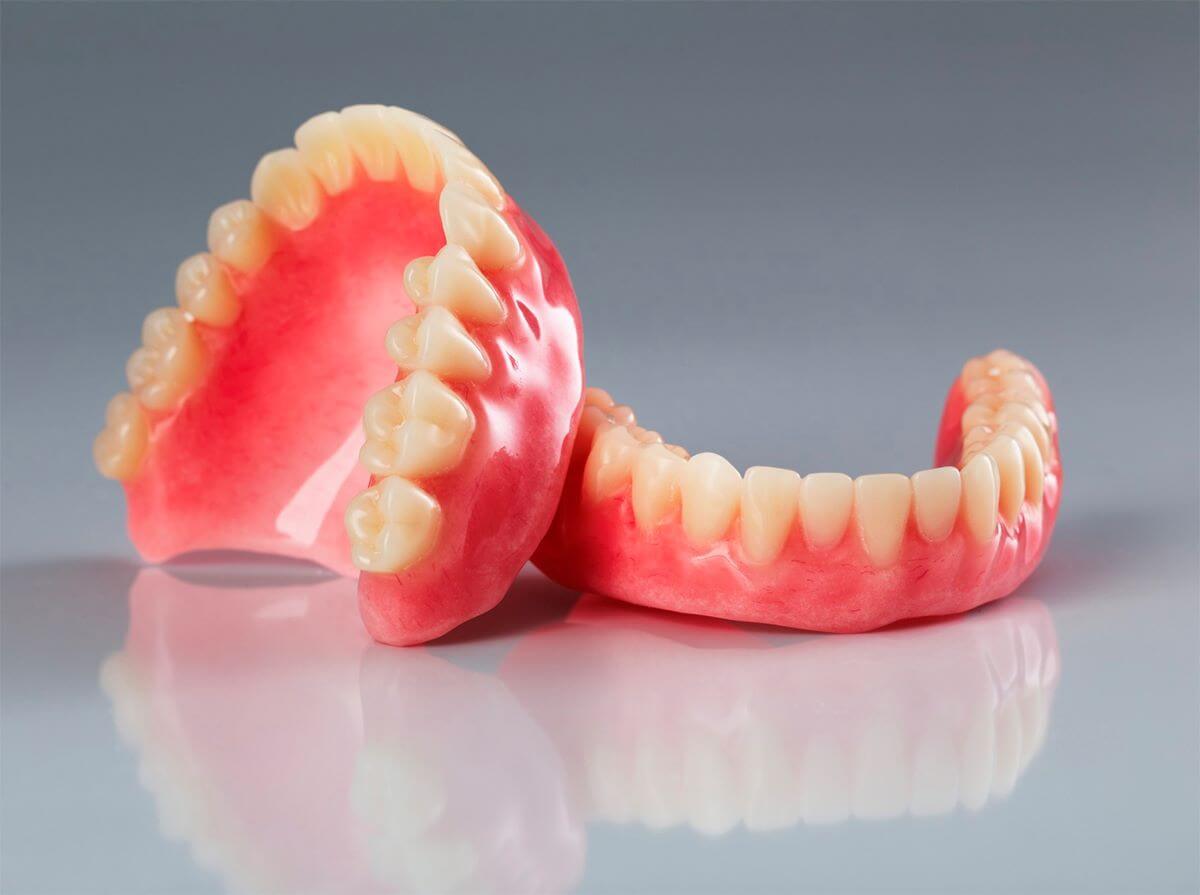
1) What do dentures look like?
Dentures are similar to real or natural teeth and come with an acrylic base that looks like real gums. The detachable one has a metal buckle, while the fixed one is fixed with the dentist’s glue.
Porcelain or acrylic are common materials for dentures today.
Custom and ready-made versions differ in quality and aesthetics. Custom ones are reliable and look natural, while off-the-shelf ones tend to look fake. Are dentures worn 24 hours a day?
Not true, if the prosthesis is removable, you don’t need to wear it 24 hours a day. You must wear the removable prosthesis for at least 8 hours during the day. Avoid leaving them indoors at night to give your gums a rest, which can also cause yeast infections if worn for too long. Remove removable dentures when eating, brushing, and flossing. Denture wearers who have no teeth can eat with removable dentures. They must be removed before going to bed, though, to avoid infection and gum problems. Also, be sure to clean them every time you put them back together.
If you have regular, all you need to do is be extra vigilant about your oral hygiene. Stick to your oral hygiene routine and make sure to brush and floss after each meal. Also, see your dentist for a deep cleaning after 6 months to keep your dentures and gums healthy and clean.
2) Do dentures always look fake?
They don’t always look fake, and it’s hard to tell the difference these days. It really depends on the type, material, and quality you choose.
Unlike fake plastic, porcelain looks more real and fits better. The off-the-shelf plastic ones look fake because they come in one size fits all and are extra white.
3) How can I find the best denture dentist?
Finding the right dentist can sometimes be a daunting task. This is especially true if you are missing teeth and are looking for a prosthodontist. Here are a few things you should keep in mind when looking for the best dentist for this treatment:
- Dentist Qualification
If you’re looking for a dentist for this type of restorative treatment, choose a prosthodontist. Make sure to check their certification. There should be proof of verification from an official prosthodontic board.
- View customer reviews
Checking online reviews is the easiest way to find a dental clinic today. It gives you a clear idea of the quality of their work and customer service. Contact the clinic with the fewest negative reviews.
- Visit the Dentures Before/After Gallery
Pictures are worth a thousand words, especially for this treatment. Check to see if they have a photo gallery showing before and after. It will definitely make it easier for you to choose a dentist to install your dentures.
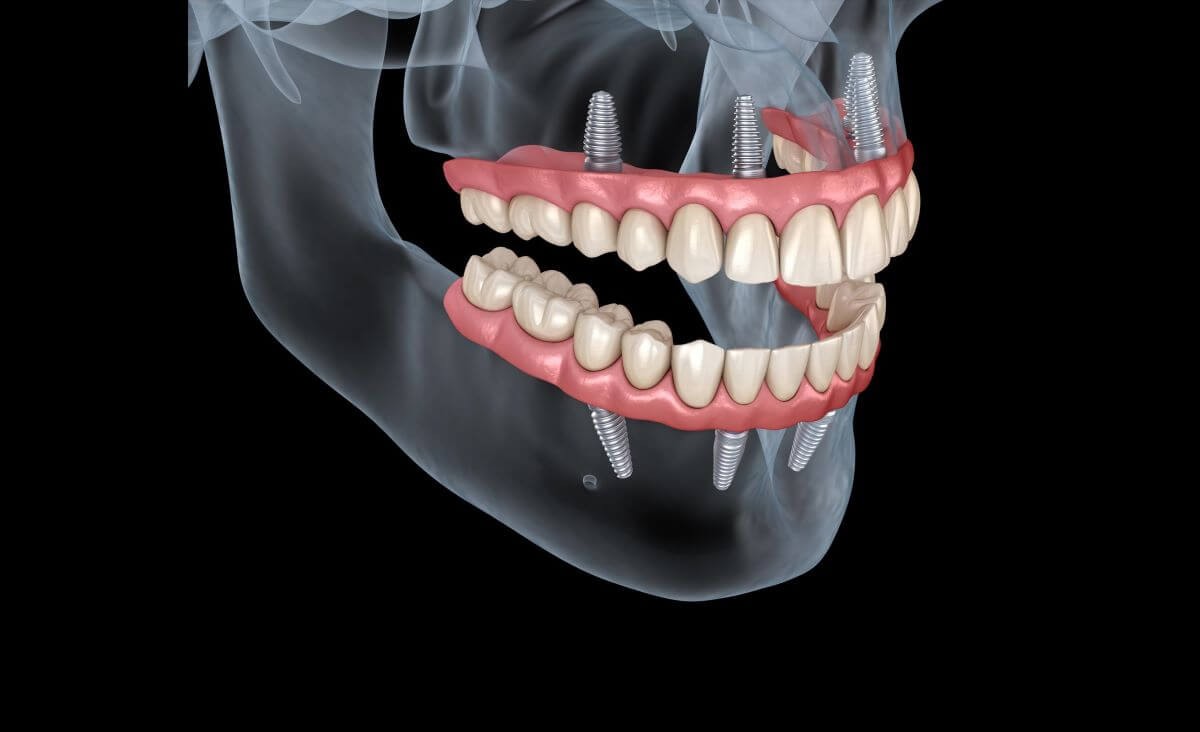
2. Advantages and disadvantages of dentures
If you’re considering denture implants, you need to understand their benefits and limitations. Understanding how they affect your jaw and overall oral health will help you make an informed decision. So what are the advantages and disadvantages of dentures, we explain below:
1) Advantages of dentures
- Smile Restoration: The great advantage of having this treatment is that you get a new set of teeth. You can laugh without hesitation. This is a huge advantage for us!
- Affordable Solution: This is one of the most commonly used alternative treatments. Prices vary according to the needs of the patient, but the total cost is much lower than other treatments. Price is also affected by the material you choose.
- Less invasive: Unlike other cosmetic dental treatments, denture surgery is less invasive. It’s a different story if you need tooth extractions to place dentures. If you don’t, replacing missing teeth with dentures is the least invasive procedure.
- Improves Jaw and Bite: Due to missing teeth, the jawbone starts to sag, making you look older. Wearing dentures can enhance the jaw structure and give a more youthful appearance. Your malocclusion, or bite alignment, will improve even more if you use implant-supported dentures.
- Improve your speech: This type of prosthesis addresses any speech problems associated with tooth loss. You can speak correctly!
2) Disadvantages of dentures
- Faux look: Not always, but if your dentures are not up to par, they will often give off an artificial look. Most of the time, acrylic or plastic items tend to look fake due to poor quality. It is best to discuss this with your dentist before you make a decision!
- Susceptible to infection: They are artificial teeth and do not replace teeth from the root. If they don’t fit properly, food can enter the space and cause infection. Also, leftover food particles can lead to yeast infections if not cleaned properly.
- Extra Hygiene Measures: You must take extra care of your oral hygiene as they are not real teeth. Every time you take it off, you must clean it before putting it back on. The whole process can seem a bit tiring at times.
- Fit Issues: Fit is the largest and most critical part of your treatment. If they don’t work for you, many complications can arise. Poorly fitting or too-tight prosthetics can lead to jaw problems or sore gums in the long run, so it’s best to address problems as soon as you notice them.
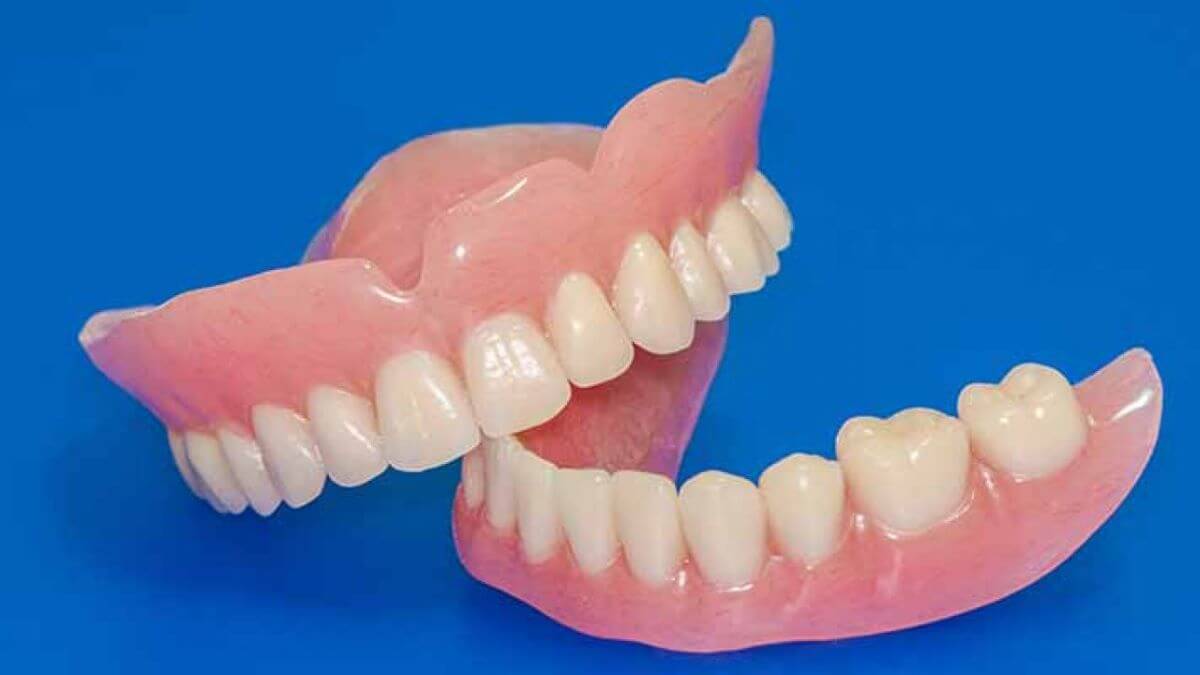
3. I need all my teeth and dentures removed: where do I start?
You can start by contacting a reliable and qualified prosthodontist. If you have any chronic medical conditions, please share your medical history with your dentist. If you need a tooth extracted, dentists advise patients to consult their GP first.
After the extraction, your dentist will allow your jaw to heal and place temporary dentures. It takes at least 3 to 6 months for the mandible to heal after tooth extraction. During the healing phase, your dentist will call you into the clinic several times to check on your recovery. After the socket and gums have healed, the dentist will take new measurements. After a few days, they will call you to install permanent dentures.
4. Who is a candidate for dentures?
Dentures are easier and quicker to place, but they may not be right for everyone. You are a potential candidate for dentures if:
- You are missing more than 1 tooth on adjacent sides
- you have healthy gums and jawbones
- Your mouth can adapt to foreign objects
- Malocclusion due to missing or damaged teeth
Also, you cannot wear dentures if you:
- you have gum disease
- have severe bone loss
- Think implants and crowns are expensive
- Allergy to foreign body
- Not ready for regular and ongoing dental hygiene rules
1) Why should I wear dentures?
Dentures are best for you if you are missing more than two teeth. They’ll give you a new set of teeth so you can eat and smile like before. In addition to aesthetic benefits, dentures can also improve the structure of your jaw. Missing teeth, in the long run, can cause your jaw to droop, making you look older. Wearing dentures not only restores your smile but also improves your oral health.
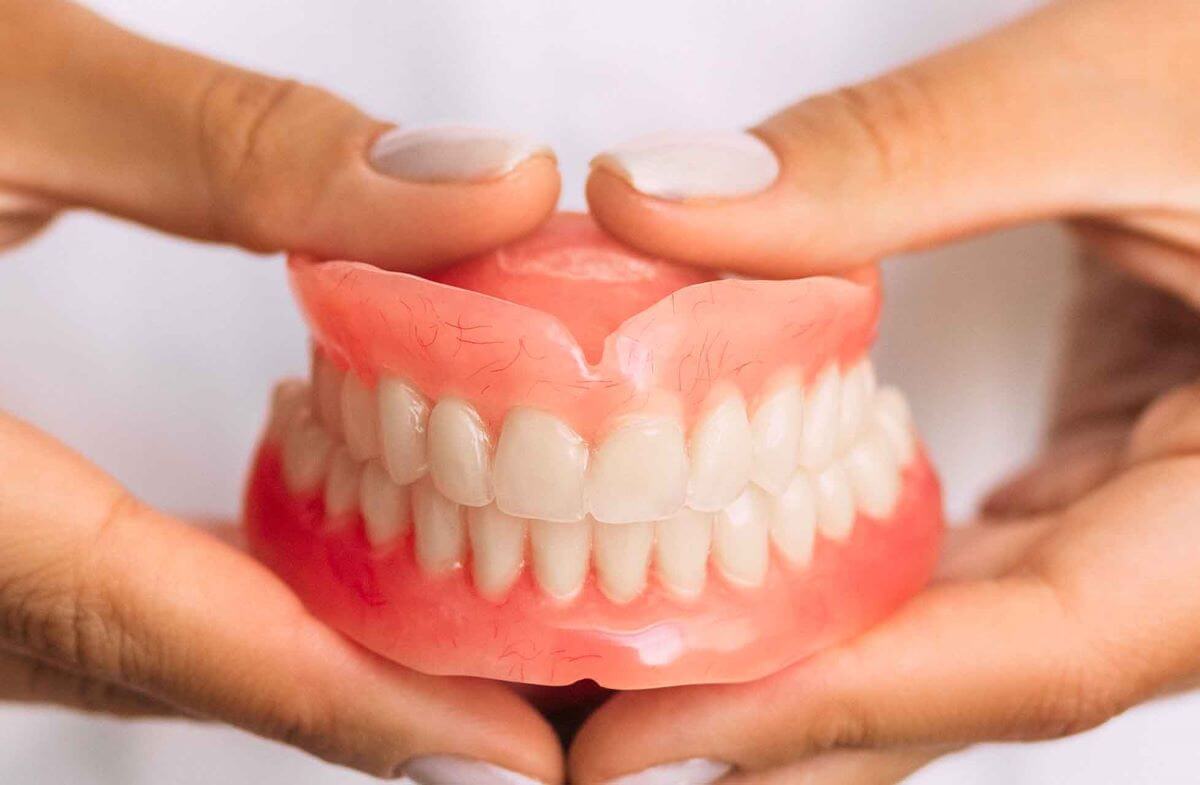
2) Is it a good idea for young people to wear dentures?
While most people think that dentures are better for older people, that’s not entirely true. There are many types of dentures available today, and you can choose according to your needs. Today, even young people in their 20s and 30s can wear dentures if they are missing teeth. It’s also safe for kids to wear dentures in case they lose a tooth because they won’t be in direct contact with your jaw.
3) Can dentures be fitted with receding gums?
Wearing dentures is not a good idea if there are signs of receding gums. Dentists advise against this because dentures also cover the gums, which can worsen them.
It is best to treat the underlying problem before undergoing this treatment.
If you already have sensitive gums, discuss them with your dentist to avoid any complications.
4) What is the history of dentures?
The concept of dentures began with the Etruscan tribes in the 7th century. They were the first to use animal and human teeth to replace missing teeth.
This concept became more popular in the 1700s and people started using this type of denture more. In this era, ivory and hard rubber were more popular. Ivory comes from animals, and vulcanizate is a hard polymer rubber used to make dentures. The material is not durable and can be painful to eat, so it won’t last long.
The first porcelain appeared in France in the late 1800s. They are not strong and tend to crack. In the early 20th century, new technologies improved the quality of porcelain dental restorations.
Today, porcelain is the more popular and durable option for this treatment.
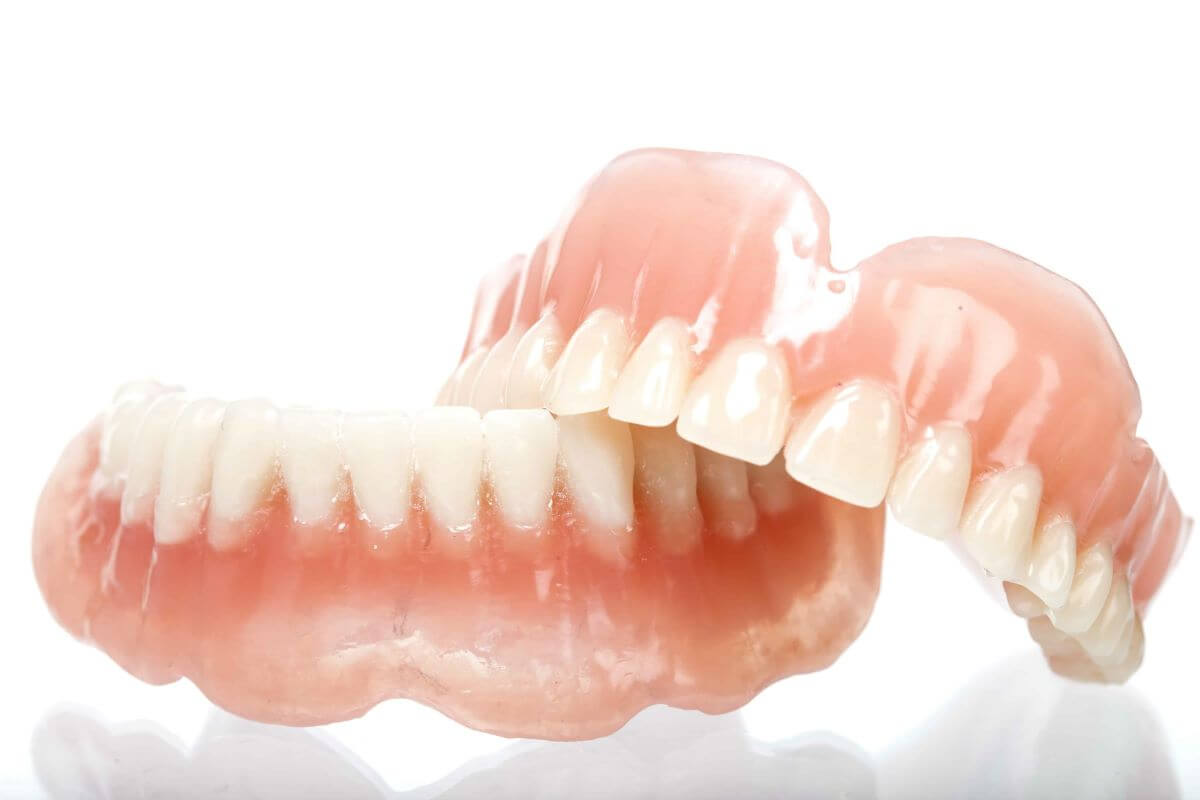
5) Do celebrities also wear dentures?
Dentures are a popular trend these days to improve your smile, especially in front of the camera. Here are the world-famous Hollywood stars who opted for dentures to transform their smiles:
- Emma Watson: Known for her role as Hermione in the Harry Potter franchise, Emma wore dentures during filming. When her baby teeth started falling out, she chose them to replace the missing teeth.
- Drew Barrymore: Her captivating smile captivates people on and off the screen. Little did we know that she wore dentures throughout her childhood after losing her baby teeth.
- Tom Cruise: Known for his million-dollar smile, Tom Cruise didn’t have the most perfect smile when he entered the industry. His dentist restored his crooked smile by placing this type of denture.
- Ben Affleck: There’s no question that Affleck’s smile is a big part of his onscreen charisma. Rumor has it that he has been wearing a full set of dentures for years to perfect his radiant smile.





Leave A Comment